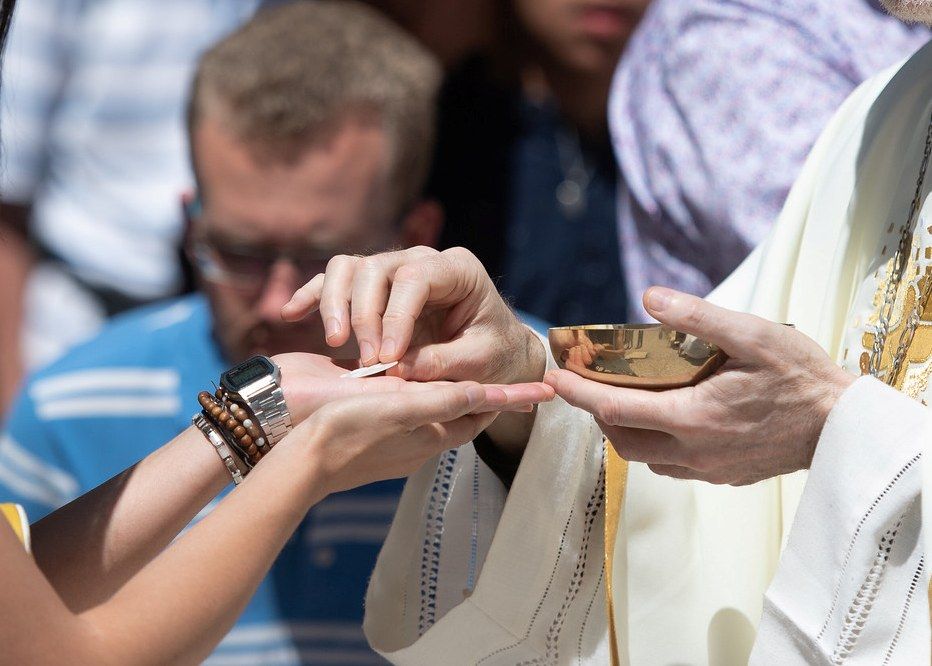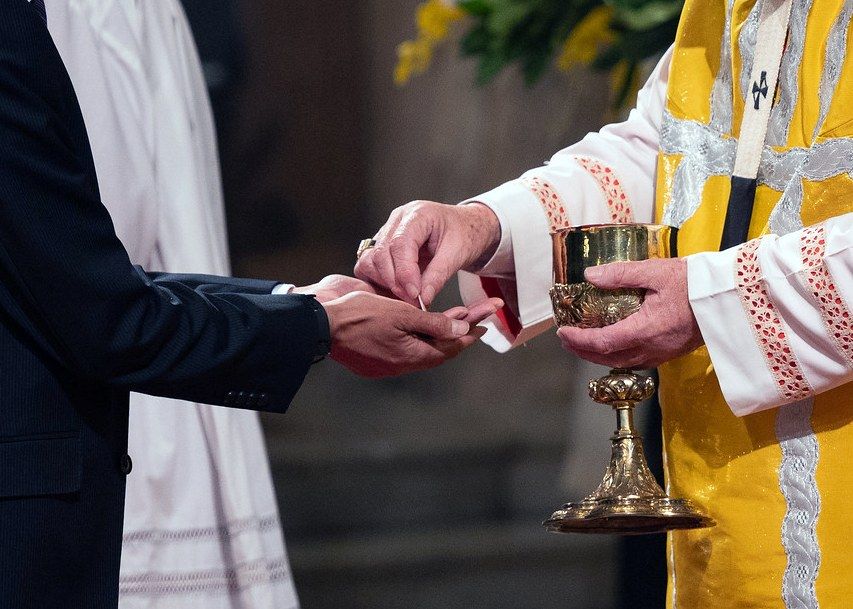
You become aware of their hands.
You notice the look in their eyes.
You hear what is not said.
After you’ve been a priest, deacon or minister of the Communion for a while, you begin to notice the hands. The Body of Christ, you say as you place the host in his or her hands: Hands that are calloused and scarred from work. Hands that are gnarled and broken by illness. Hands that care for children, the sick, the elderly. Hands that make music, build boats, cook, plant, create beautiful things. All of these hands tell the stories of these people who have responded to God’s invitation to come to this table. This bread is their connection with the God who authored their stories.

And after you’ve become more comfortable in the role of distributor of the consecrated bread, you start to look — even if just for a second — into their eyes. As you hold up the piece of bread, you see in the communicant’s eyes the simple joy of receiving their Lord in the Eucharist. Some days you might detect a sadness or hurt in their eyes or hear a note of pain or grief in their Amen.
You understand that you are not a part of this moment. Whether gratitude or grief, relief or despair, this is Communion between God and this individual. God is just using your hands — and you’re humbled to be of such use. And when you return to the altar with the “fragments” in your ciborium you realize the depth of God’s love for all of us who come to this table of ours.
We come to the table with our joys, our thanks, our hurts, our doubts, our crises, our griefs. Some days we come with grateful hearts and some days we come broken and distraught; other times we come gratefully aware of God’s presence in our lives — and at times we come wondering if God is really here.
But we come.
Because we know that every time we come, the miracle happens.
Jesus feeds the crowd — us.
Nora Gallagher writes in The Sacred Meal: “Communion is meant to be done together; it has to be done in community. You can pray alone and fast alone. You can even go on pilgrimage alone. But you can’t take Communion alone . . . Communion forces us to be with others [and] stand with them . . . We are forced to be with strangers and people we don’t like, persons of different colours and those with bad breath or breathing cheap alcohol . . . We are stuck with each other, at that altar, at least for a few minutes.” And that’s what enables the real miracle to happen: The Eucharist transforms us from a collection of diverse, disconnected souls into a community of faith. We come here with our struggles and doubts and pains and sorrows and, if the Eucharist is what Jesus intended it to be, we find support and compassion from those who come to the table with us. Today’s feast of the Body and Blood of Christ celebrates our call by Jesus who fed the multitudes to be both guest and waiter, participant and host at the banquet of God.